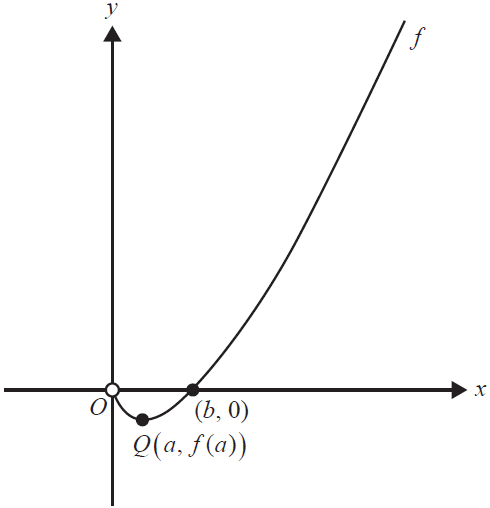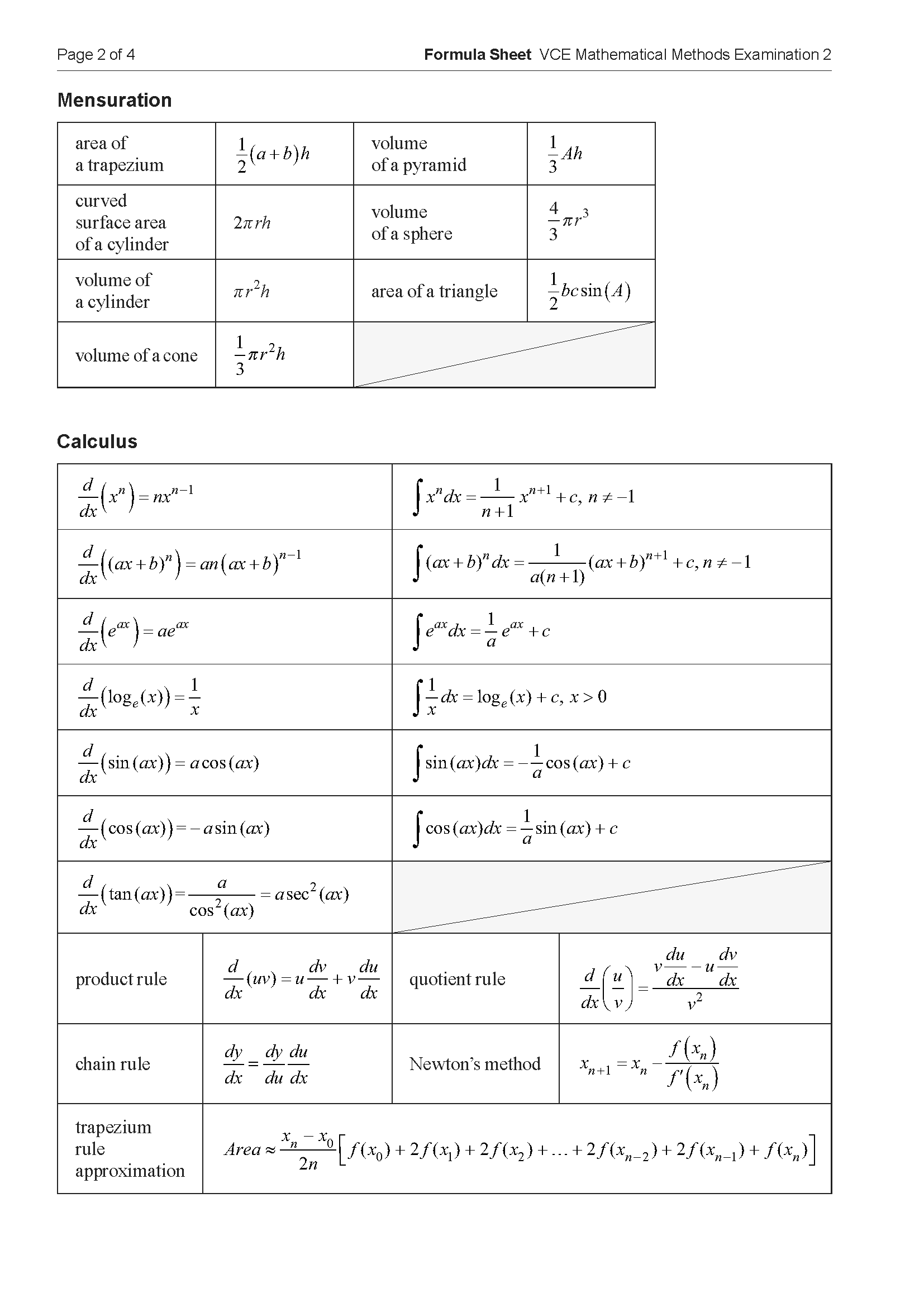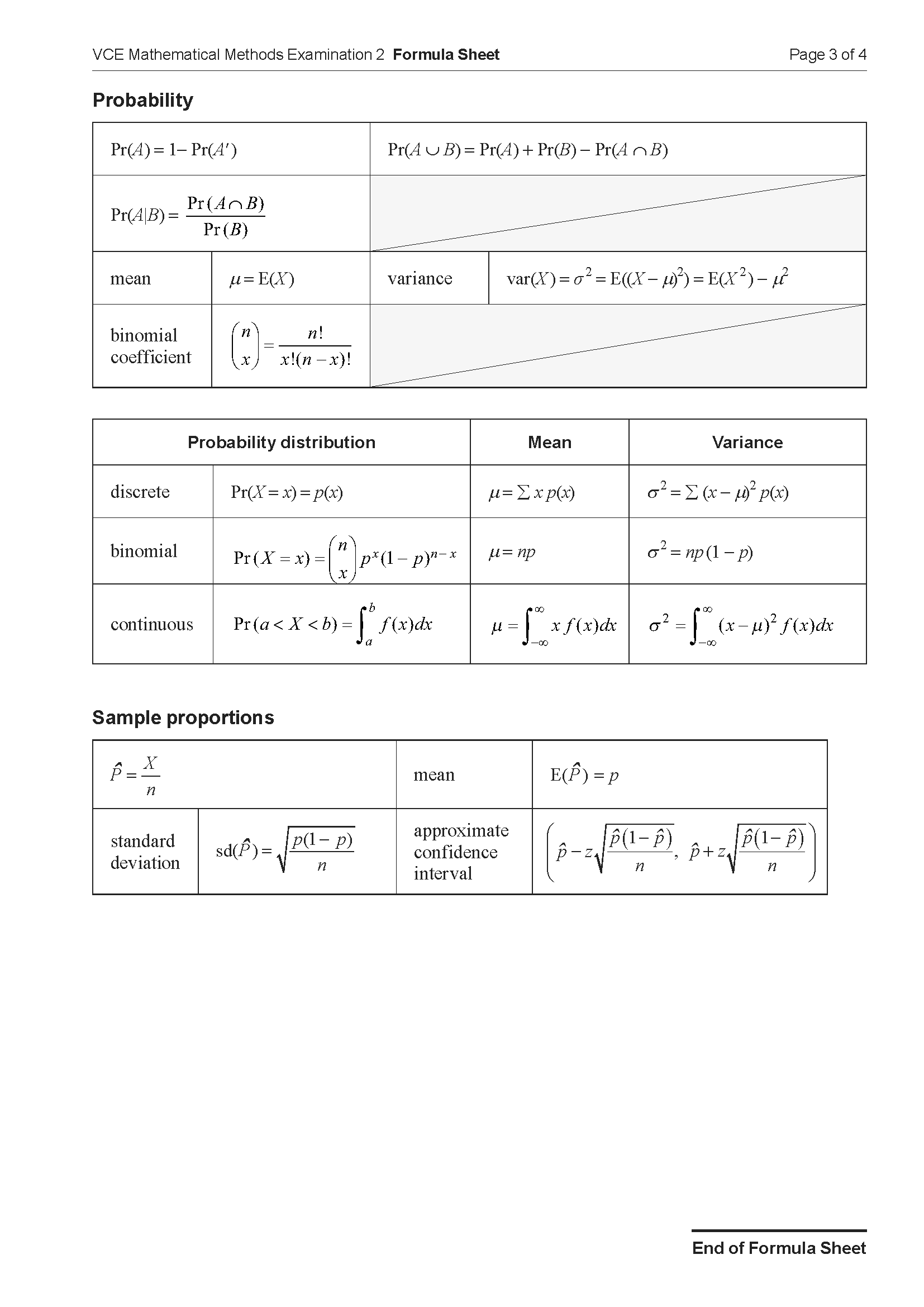VCE Maths Methods Integral Calculus Mini Test 7
Number of marks: 10
Reading time: 2 minutes
Writing time: 15 minutes
Section A – Calculator Allowed
Instructions
• Answer all questions in pencil on your Multiple-Choice Answer Sheet.
• Choose the response that is correct for the question.
• A correct answer scores 1; an incorrect answer scores 0.
• Marks will not be deducted for incorrect answers.
• No marks will be given if more than one answer is completed for any question.
• Unless otherwise indicated, the diagrams in this book are not drawn to scale.
If \( \int_0^a f(x)dx = k \), then \( \int_0^a (3f(x) + 2)dx \) is
- A. \(3k + 2a\)
- B. \(3k\)
- C. \(k + 2a\)
- D. \(k + 2\)
- E. \(3k + 2\)
A value of \(k\) for which the average value of \( y = \cos\left(kx - \frac{\pi}{2}\right) \) over the interval [0, π] is equal to the average value of \( y= \sin(x)\) over the same interval is
- A. \( \frac{1}{6} \)
- B. \( \frac{1}{5} \)
- C. \( \frac{1}{4} \)
- D. \( \frac{1}{3} \)
- E. \( \frac{1}{2} \)
End of Section A
Section B – No Calculator
Instructions
• Answer all questions in the spaces provided.
• Write your responses in English.
• In questions where a numerical answer is required, an exact value must be given unless otherwise specified.
• In questions where more than one mark is available, appropriate working must be shown.
• Unless otherwise indicated, the diagrams in this book are not drawn to scale.
Part of the graph of \(y = f(x)\), where \(f: (0, \infty) \to \mathbb{R}\), \(f(x) = x\log_e(x)\), is shown below.

The graph of \(f\) has a minimum at the point \(Q(a, f(a))\), as shown above.
a. Find the coordinates of the point \(Q\). 2 marks
b. Using \(\frac{d(x^2\log_e(x))}{dx} = 2x\log_e(x) + x\), show that \(x\log_e(x)\) has an antiderivative \(\frac{x^2\log_e(x)}{2} - \frac{x^2}{4}\). 1 mark
c. Find the area of the region that is bounded by \(f\), the line \(x=a\) and the horizontal axis for \(x \in [a, b]\), where \(b\) is the \(x\)-intercept of \(f\). 2 marks
d. Let \(g: (a, \infty) \to \mathbb{R}\), \(g(x) = f(x) + k\) for \(k \in \mathbb{R}\).
i. Find the value of \(k\) for which \(y=2x\) is a tangent to the graph of \(g\). 1 mark
ii. Find all values of \(k\) for which the graphs of \(g\) and \(g^{-1}\) do not intersect. 2 marks
End of examination questions
VCE is a registered trademark of the VCAA. The VCAA does not endorse or make any warranties regarding this study resource. Past VCE exams and related content can be accessed directly at www.vcaa.vic.edu.au

